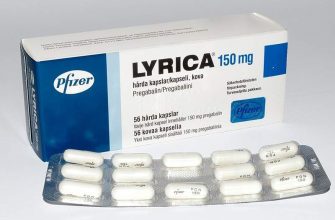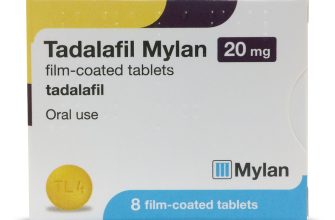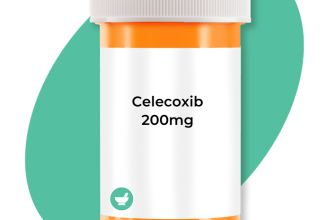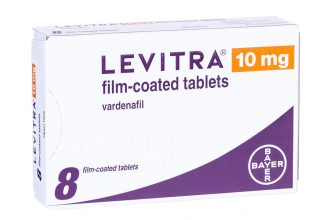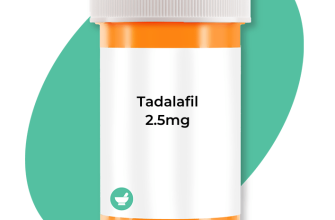If you are considering switching from brand-name Synthroid to a generic version, it’s crucial to understand the distinctions between the two. Generic Synthroid is designed to be therapeutically equivalent to the brand-name drug but may contain different inactive ingredients, potentially affecting absorption and effectiveness for some individuals.
Composition Variations
While both versions contain the active ingredient levothyroxine, the inactive components can vary. These differences can influence how your body reacts to the medication. Patients who experience side effects with generics should discuss alternatives with their healthcare provider, as certain fillers or dyes might trigger sensitivities.
Dosage Precision
The formulation process for generics involves manufacturing specifications that allow for slight variations in potency. This can be significant for individuals requiring precise dosage adjustments. Always consult with your doctor to monitor thyroid levels if switching formulations, as routine blood tests will help ensure proper management of your condition.
Cost Considerations
Switching to a generic can lead to substantial cost savings without sacrificing the intended therapeutic outcomes. Many patients find the generic option more accessible and budget-friendly, but it’s essential to verify with your pharmacy regarding their specific offerings and insurance coverage to avoid unexpected costs.
- Generic Synthroid vs. Brand: Understanding the Differences
- Differences in Formulation
- Cost Considerations
- Consult Your Healthcare Provider
- Composition and Active Ingredients in Generic vs. Brand Synthroid
- Active Ingredients
- Inactive Ingredients
- Differences in Absorption and Bioavailability
- Factors Influencing Absorption
- Clinical Implications
- Cost-Effectiveness: Is Generic Synthroid Really Cheaper?
- Insurance and Copays
- Prescription Discounts and Programs
- Potential Variations in Efficacy and Patient Experience
- Understanding Patient Experiences
- Key Considerations
- Regulatory Standards and Quality Control for Generic Medications
- Manufacturing Practices
- Bioequivalence Studies
Generic Synthroid vs. Brand: Understanding the Differences
Choosing between generic Synthroid and the brand-name version is a common concern for many patients. Generic Synthroid contains the same active ingredient, levothyroxine sodium, and works effectively to manage hypothyroidism. However, there are distinct differences to consider.
Differences in Formulation
- Inactive Ingredients: Generic versions often contain different fillers, binders, and dyes that may affect absorption or tolerability in some individuals.
- Bioequivalence: While generics must meet FDA standards for bioequivalence, the absorption rates can vary slightly, impacting how well the medication works for you.
- Manufacturing Processes: Each manufacturer follows unique processes, which may influence the medication’s consistency and efficacy.
Cost Considerations
Generic Synthroid typically costs less than the brand-name version, making it a more affordable choice for many. Insurance plans often encourage the use of generics, which can save money on out-of-pocket expenses.
Consult Your Healthcare Provider
Discuss options with your healthcare provider before making any changes. They can help determine if switching to a generic version is appropriate based on your medical history and current treatment plan.
Composition and Active Ingredients in Generic vs. Brand Synthroid
Generic Synthroid and brand Synthroid contain the same active ingredient, levothyroxine sodium, which is critical for treating hypothyroidism. The primary difference lies in the inactive ingredients or excipients that vary between the two formulations.
Active Ingredients
Levothyroxine sodium is the sole active component in both treatments, ideal for replenishing thyroid hormone levels. It provides the same therapeutic effect, ensuring adequate hormone replacement. Patients can rely on either option for consistent results when monitoring thyroid function.
Inactive Ingredients
Inactive ingredients differ and can influence absorption and tolerability. Generic versions may contain fillers, binders, or coloring agents that differ in composition. These variations can affect individuals differently; some may find one formulation more tolerable than the other. Consult your healthcare provider to determine the best option, especially if you experience any adverse effects.
Differences in Absorption and Bioavailability
The absorption and bioavailability of generic synthroid can differ significantly from the brand version. These differences may impact how well the medication works for individual patients. Brand levothyroxine typically has a consistent absorption profile, which can lead to more stable thyroid hormone levels in the bloodstream.
Factors Influencing Absorption
It is essential for healthcare providers to assess how well a patient responds to either the generic or brand version of synthroid. Regular blood tests can help determine if the dose needs adjustment. Patients should communicate any symptoms of hypothyroidism, like fatigue or weight gain, during transitions between formulations. This proactive approach ensures optimal thyroid management.
Cost-Effectiveness: Is Generic Synthroid Really Cheaper?
Generic Synthroid typically offers significant cost savings compared to the brand-name version. Patients often experience a price reduction of up to 80%. This affordability can alleviate financial strain, particularly for those managing long-term thyroid conditions.
Insurance and Copays
Many insurance plans favor generics, leading to lower copayments. Check your specific plan, as the cost difference can vary based on your coverage. You might discover that your copay for generic Synthroid is less than a quarter of the brand-name price.
Prescription Discounts and Programs
Look for prescription discount programs. Retail pharmacies frequently offer savings on generic medications, making them even more affordable. Apps and online resources can help you find the best prices in your area, potentially saving you even more each month.
Potential Variations in Efficacy and Patient Experience
Generic synthroid formulations may produce different outcomes for some patients compared to the branded version. This variation often stems from differing inactive ingredients, which can influence drug absorption and overall effectiveness. Patients might notice fluctuations in their thyroid function tests when switching between generic and brand-name formulations.
Understanding Patient Experiences
Patient feedback varies significantly regarding the effectiveness of generic synthroid compared to its brand counterpart. Some individuals report consistent symptom management with the brand product, while others experience a relapse in symptoms after switching to a generic. Monitoring symptoms and addressing changes promptly with healthcare providers offers the best approach to managing these variations.
Key Considerations
Consulting a physician is advisable if any issues arise post-switch. Regular thyroid testing helps track hormone levels, ensuring adjustments can be made if needed. Patients should also communicate their experiences, as this feedback can guide practitioners in tailoring treatment to fit individual needs.
| Factor | Brand Synthroid | Generic Synthroid |
|---|---|---|
| Inactive Ingredients | Consistent | Varies by manufacturer |
| Availability | Widely available | Depends on pharmacy |
| Cost | Higher | Typically lower |
| Patient Reported Efficacy | Stable for many | Variable experiences |
Open discussions about preferences and experiences with medications can enhance overall care and lead to better health outcomes.
Regulatory Standards and Quality Control for Generic Medications
Generic medications must meet rigorous regulatory standards that ensure their safety, efficacy, and quality. The FDA requires that generics be chemically identical to their brand-name counterparts. This means they contain the same active ingredients, strength, dosage form, and route of administration.
Manufacturing Practices
Manufacturers of generic drugs follow Good Manufacturing Practices (GMP). These guidelines ensure that products are consistently produced and controlled according to quality standards. Inspections by regulatory agencies verify compliance with these practices, focusing on facility cleanliness, equipment maintenance, and personnel training. Compliance with GMP not only promotes safety but also enhances the reliability of the medication’s performance.
Bioequivalence Studies
Generic medicines must demonstrate bioequivalence to branded drugs. This involves conducting studies that show the generic formulation delivers the same active ingredient to the bloodstream in the same amount and at the same rate. These studies support the assertion that generics are interchangeable with brand-name products, providing assurance to healthcare providers and patients about their therapeutic effects.



